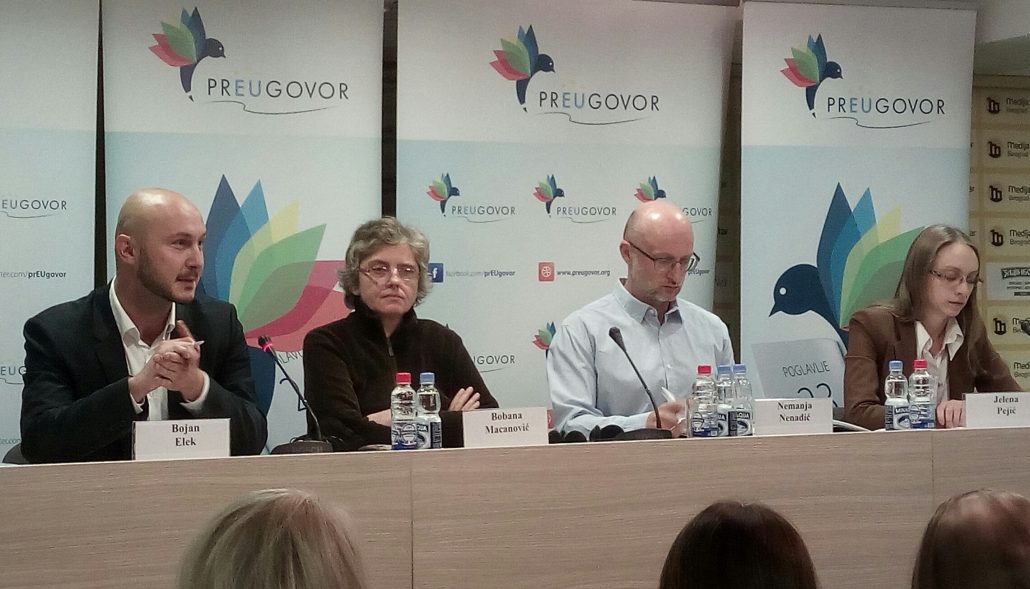A coalition of seven NGOs entitled prEUgovor, which monitors Serbia’s EU accession process, presented a new report that contains the coalition’s assessment of the political criteria for the EU accession process, as well as the fulfilment of criteria for chapters 23 and 24 which include the judiciary, fundamental rights, justice, freedom and security for the period April – September 2018.
 The central finding of the report is that key reforms stagnate or even marks a downturn and that much of stagnation happens under the justification of accession process. During that period, the Serbian authorities adopted a series of laws “that are worse than the current ones”, said the NGO coalition made of ASTRA – Anti-Trafficking Action, the Autonomous Women’s Centre, the Belgrade Centre for Security Policy, the Centre for Applied European Studies, the Centre for Investigative Journalism, Group 484 and Transparency Serbia. The report said that the democratic civil control over defence and security institutions is weak in practice.
The central finding of the report is that key reforms stagnate or even marks a downturn and that much of stagnation happens under the justification of accession process. During that period, the Serbian authorities adopted a series of laws “that are worse than the current ones”, said the NGO coalition made of ASTRA – Anti-Trafficking Action, the Autonomous Women’s Centre, the Belgrade Centre for Security Policy, the Centre for Applied European Studies, the Centre for Investigative Journalism, Group 484 and Transparency Serbia. The report said that the democratic civil control over defence and security institutions is weak in practice.
Commenting at the presentation, DPNSEE Executive Director remarked that the report has no reference to the segment on drugs which is integral part of the Chapter 24 and presented some warning facts about the issue. DPNSEE and the coalition have working relations which both sides hope to be improved in the future.
The report is available following this link>>>>
(photo: prEUgovor)


